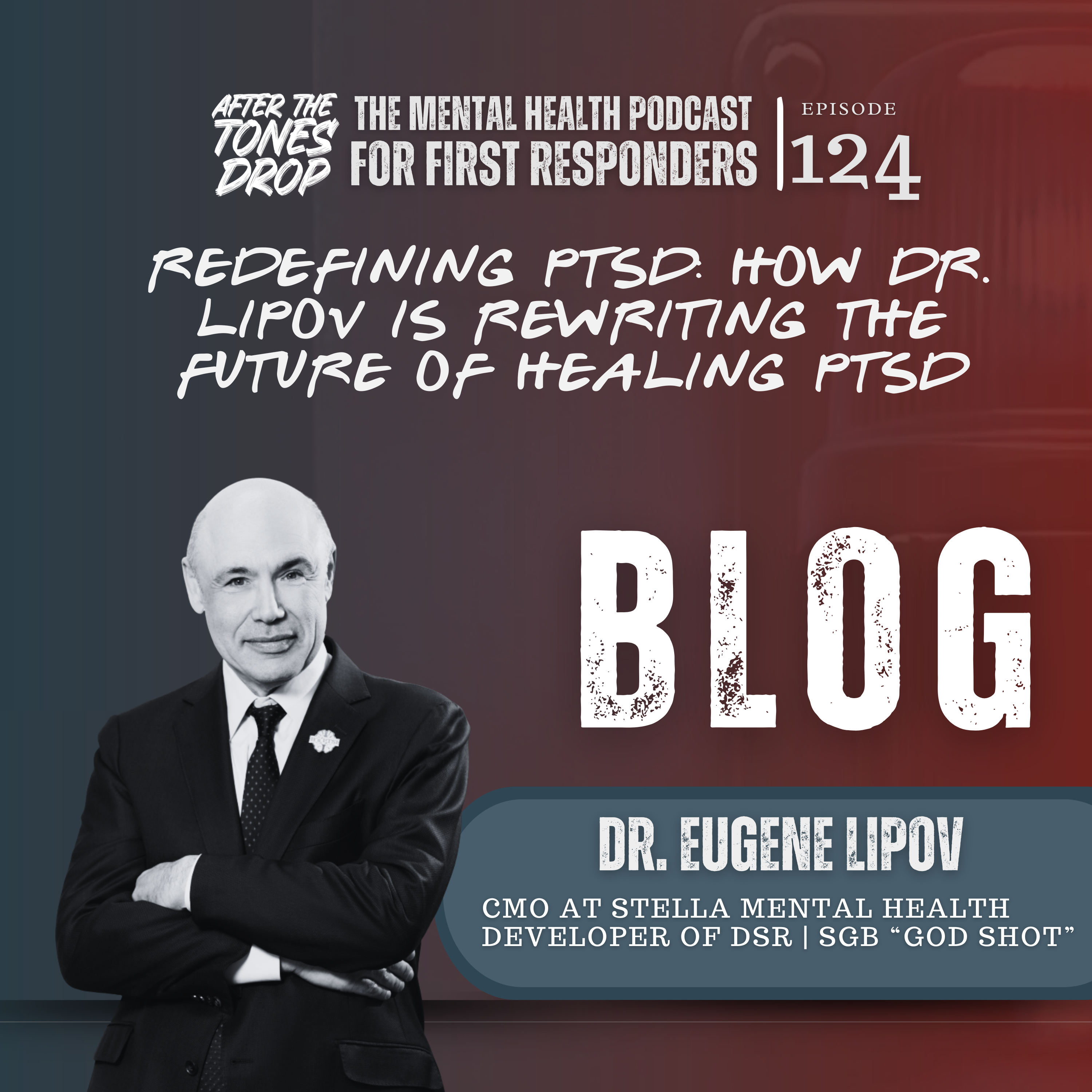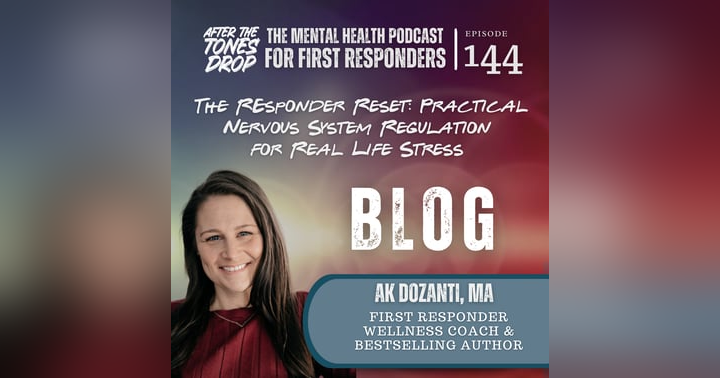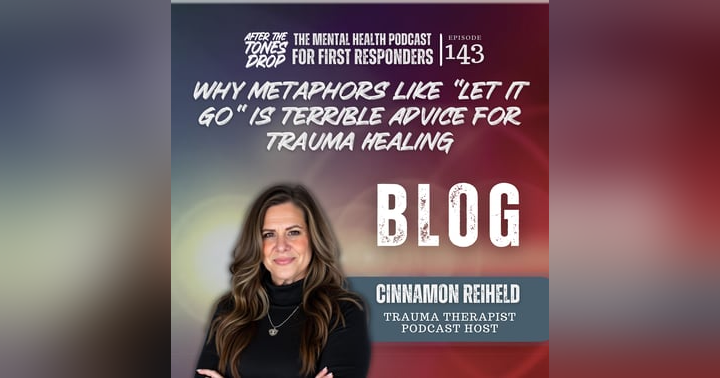Redefining PTSD: How Dr. Lipov Is Rewriting the Future of Healing PTSD

Redefining PTSD: How Dr. Lipov Is Rewriting the Future of Healing PTSD
What if PTSD didn’t have to be permanent? What if we stopped calling it a “disorder” and started recognizing it as what it really is... an injury to the nervous system that can heal?
That’s exactly what Dr. Eugene Lipov and I dig into in part two of our conversation on After the Tones Drop. If part one was about the “what” and “how” of the Stellate Ganglion Block (aka the God Shot), this episode is about the bigger picture: the systems that need to change, the new treatments on the horizon, and the fight to build a future where first responders and trauma survivors don’t just survive, they recover.
Why Words Matter: From PTSD to PTSI
Dr. Lipov is leading the push to change the name from “Post-Traumatic Stress Disorder” to “Post-Traumatic Stress Injury.” It might sound small, but language has power. Calling trauma an “injury” shifts the focus from “something’s wrong with you” to “something happened to you.” That simple change helps strip away stigma and opens the door for real healing.
Beyond the Shot: Expanding Options for Healing
The Stellate Ganglion Block is a game-changer, but it’s not the only tool in the kit. In this episode, Dr. Lipov and I talk about emerging treatments like ketamine and ibogaine, and how combining therapies—done safely, with the right oversight—can give people the best shot at long-term recovery. The message? Healing isn’t one-size-fits-all, and that’s a good thing.
Breaking Barriers: Systemic Change and Leadership
One of the toughest battles isn’t medical—it’s cultural. From insurance companies that drag their feet to old-school leadership still stuck in a “suck it up” mentality, change takes more than science. It takes advocacy, trauma-informed leadership, and voices willing to challenge the status quo. Dr. Lipov is doing that every day, not just through medicine but through policy work and his nonprofit, Erase PTSD Now.
This isn’t just a conversation about treatment—it’s about possibility. About reminding first responders, military families, and trauma survivors everywhere that the story isn’t over.
If you’ve ever wondered what the future of trauma care looks like—or what hope looks like when science and advocacy collide—this episode will give you a glimpse.
Listen Now: 👉 Listen now: Part 2 of 2 Episode 124 Dr. Eugene Lipov


